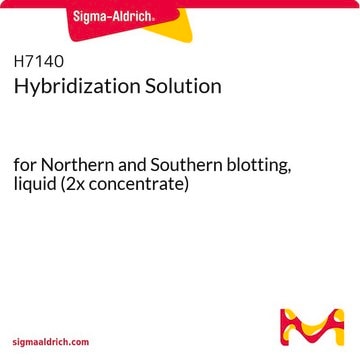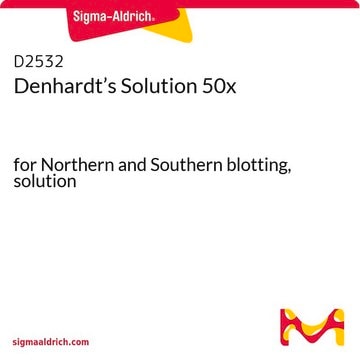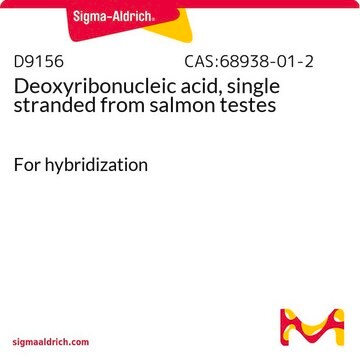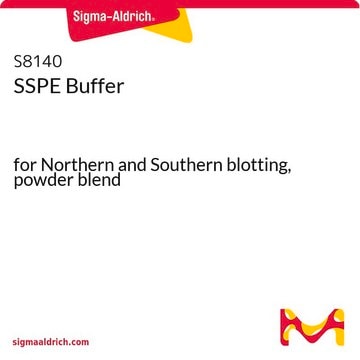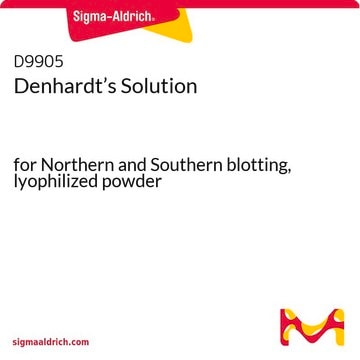H7033
PerfectHyb™ Plus Hybridization Buffer
for Northern and Southern blotting, solution
Synonym(s):
hyb buffer, hyb solution, hybridization solution, northern hybridization buffer, southern hybridization buffer
About This Item
Recommended Products
General description
Application
Features and Benefits
- Fast and easy-to-use
- Up to 20x more sensitive than conventional buffers
- Doesn′t require blocking steps
- Compatible with neutral and positively-charged membranes
- Compatible with chemiluminescent, colorimetric , and DIG detection assays
- Compatible with radioactive and non-radioactive probes
- Compatible with single or double-stranded DNA, RNA, and oligonucleotide probes
Other Notes
Legal Information
replaced by
Storage Class Code
12 - Non Combustible Liquids
WGK
WGK 2
Flash Point(F)
Not applicable
Flash Point(C)
Not applicable
Certificates of Analysis (COA)
Search for Certificates of Analysis (COA) by entering the products Lot/Batch Number. Lot and Batch Numbers can be found on a product’s label following the words ‘Lot’ or ‘Batch’.
Already Own This Product?
Find documentation for the products that you have recently purchased in the Document Library.
Customers Also Viewed
Protocols
Learn Northern and Southern blotting basics, with protocols and applications for macromolecule transfer to membrane supports.
Learn Northern and Southern blotting basics, with protocols and applications for macromolecule transfer to membrane supports.
Learn Northern and Southern blotting basics, with protocols and applications for macromolecule transfer to membrane supports.
Learn Northern and Southern blotting basics, with protocols and applications for macromolecule transfer to membrane supports.
Our team of scientists has experience in all areas of research including Life Science, Material Science, Chemical Synthesis, Chromatography, Analytical and many others.
Contact Technical Service


